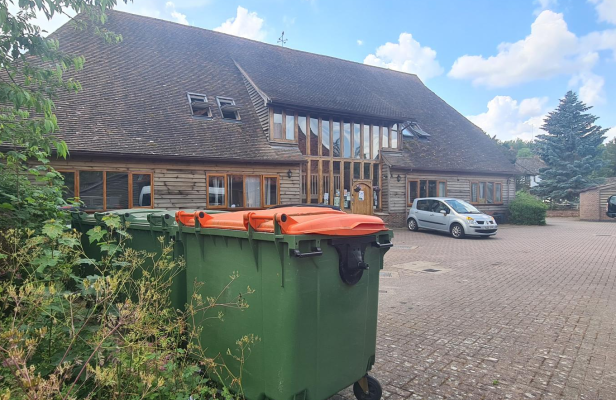I joined Red2Green in 2018 as Chief Operating Officer having never worked in the charity sector before, only volunteered for a small charity, and it was a big shock!
I’ve supported charities for years, and I was always very conscious of looking at how they spend their money, a scrutiny that I’m sure many of us have. I’ve looked at the pay of the CEO, as remember this is a charity not a business (but that’s a blog post for another time), and I’d be critical of how much they spend on administration. I’d be frustrated by what appeared to be a waste of money with constant letters asking for money, or payment of a fundraiser. I studied the accounts of a charity I wanted to donate to and looked at the percentage of costs for administration versus charitable activities.
When I started at Red2Green, I saw a different side. The inside.
I remember being surprised at the things that we had to consider, for example:
Bins!
A charity has the same costs of a corporate organisation, and one of those is disposal of our waste. We have to get a balance of how often our waste is collected and how many bins we have. There are times, especially with our recycling, where we end up in ‘bin debt’, waiting for the bins to be emptied so we can fill them up again (especially recycling… we are really trying to be eco-friendly), and we then must consider if we should pay for an extra collection or not. The answer is often not, and I’ve had to tell the administrator off for jumping in the bin to try and fit more in it!
Some of the hidden costs are regular, like the bins, and some of them are a one-off cost that we may or may not be able to fundraise for, or if we are lucky get for free. Blinds and bookcases are a good example of this. If we need something we will look at where we might be able to get it for free or apply for a grant. But should we put everything off until we find it without a cost to ourselves?
But then there is a cost.
A hidden cost.
The cost of time.
The staff time in searching for an item, the time taken communicating and getting the item. Then there’s the disposal cost if the item isn’t right! We are always grateful for donations when they are things we can use, but it is worth thinking about whether the bookcase you are giving us is on its last legs or could last a few years. Because at some point we will be paying for its disposal.
There are many other hidden costs that I haven’t mentioned here, and as a charity we grapple with the tension between being professional, meeting laws (especially Health and Safety), looking after our staff and volunteers, and keeping our administration costs low. Administration isn’t seen as a charitable activity, but after almost 5 years in the charitable sector, I would argue it is. We cannot run without our office team, or your donations, or indeed our bins!
